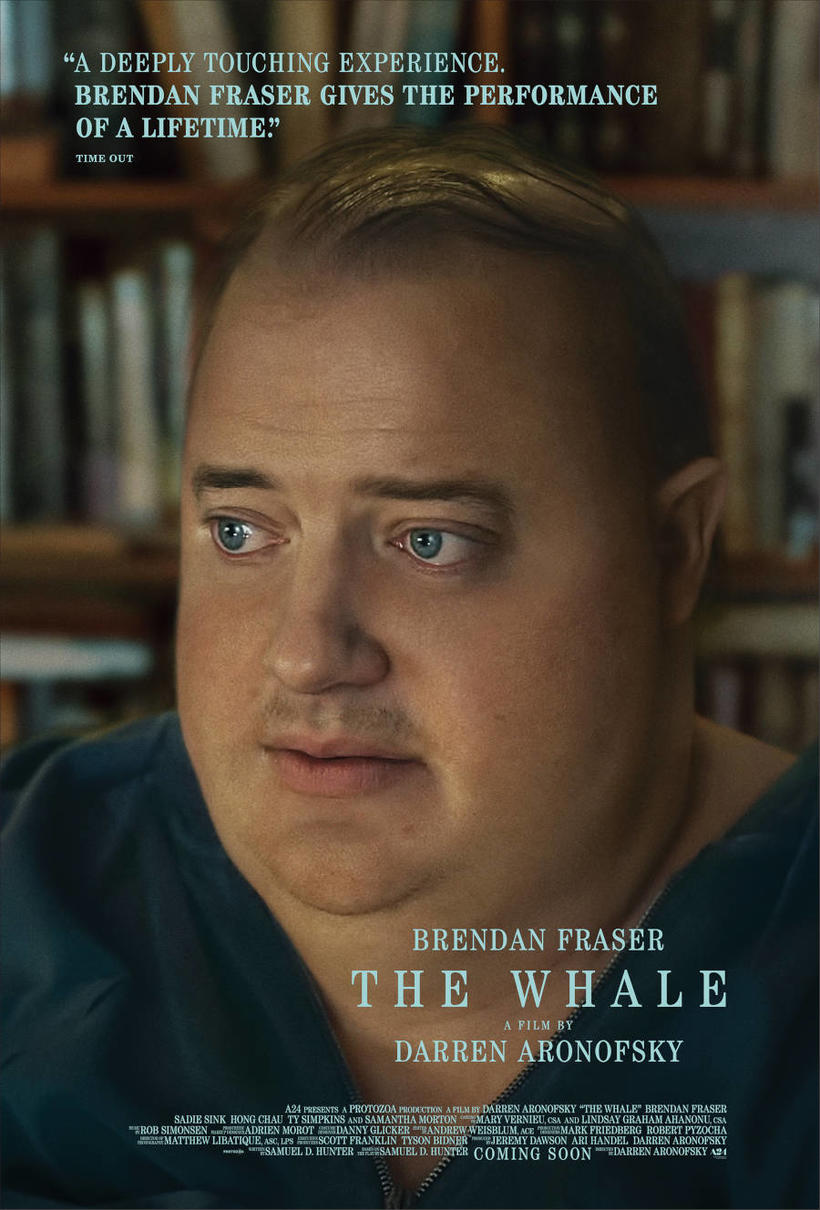Brendan Fraser plays Charlie, a morbidly obese man who lives alone and earns his living by giving online lessons in English literature to a class of young students to whom he pretends that his laptop’s camera is broken so they don’t see what he looks like.
Charlie is slowly eating himself to death for reasons that are as murky as the dingy house he lives in, but which have something to do with the death of his lover, whose sister Liz is his only friend and who has taken on the job of caring for him. If ‘caring’ is the right word: she nags him about his blood pressure and urges him to go to hospital when it gets critical, but at the same time enables his self-destructive behaviour by supplying him with the unwholesome takeaway food that’s killing him. We see him hoeing into a huge bucket of KFC and chowing down on a huge steak footlong. Grease runs down his chin and he sometimes chokes and vomits. Gross.
The Whale is based on a play in which everything happens in the one space. The filmmakers have presumably kept this stagey format to intensify the claustrophobic mood. The ‘action’, such as it is, consists of visits by the handful of people who figure in Charlie’s life, such as the aforementioned carer Liz, a pizza delivery boy, Charlie’s angry estranged daughter Ellie, his ex-wife (played by Samantha Morton) and a young doorknocker from the New Life Ministries.
The appearance of this young man provides the backstory, sort of, to Charlie’s plight. It seems his lover was psychologically damaged by the New Life mob and subsequently killed himself. Charlie and Liz are understandably not too keen on hearing the young fellow’s message about Jesus, but he keeps turning up. He seems to think he can learn something from Charlie, or save him, or something.
This isn’t an easy film to watch, and I did wonder about the point of it all. Is it about forgiveness? Redemption? Charlie wants both, for abandoning his wife and daughter. It’s not clear what the others are after. The daughter, Ellie, hates and abuses her dad for his abandonment, but he’s always paid maintenance, it’s not his fault her mom didn’t pass on his letters, and now he showers her with verbal love and assures her he’s going to leave her a goodly legacy of cash. Enough already with the spiteful tantrums!
Everyone seems to be plagued by anger, despair or misery (except the cheery pizza boy, a peripheral presence), but I couldn’t help thinking they should all do a bit more counting of their blessings and wake up to themselves. Yes, it’s a brave and bravura performance from Brendan Fraser, but altogether the emotional scenario is overwritten and overwrought in the way you only see in American movies, and it’s unconvincing.

